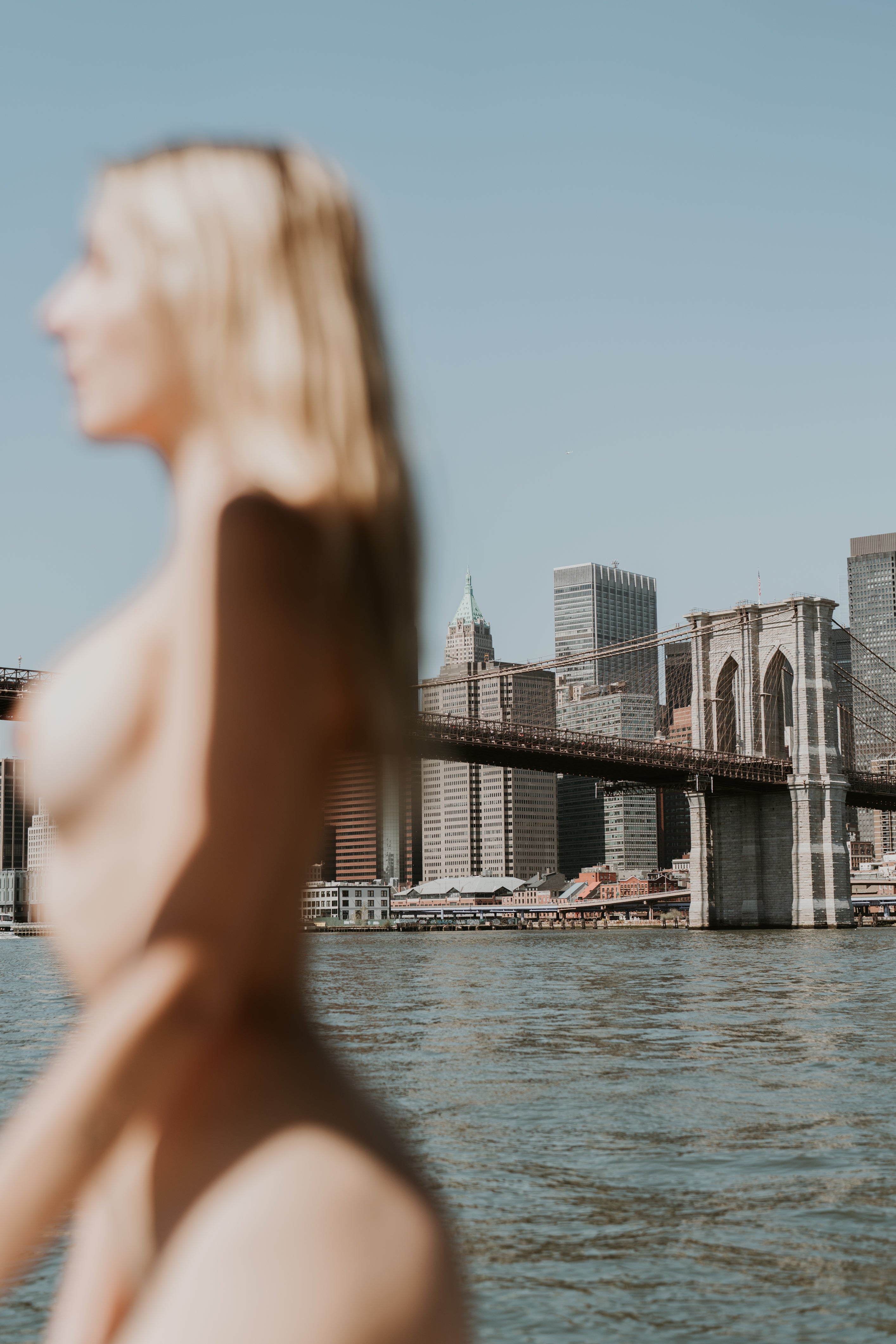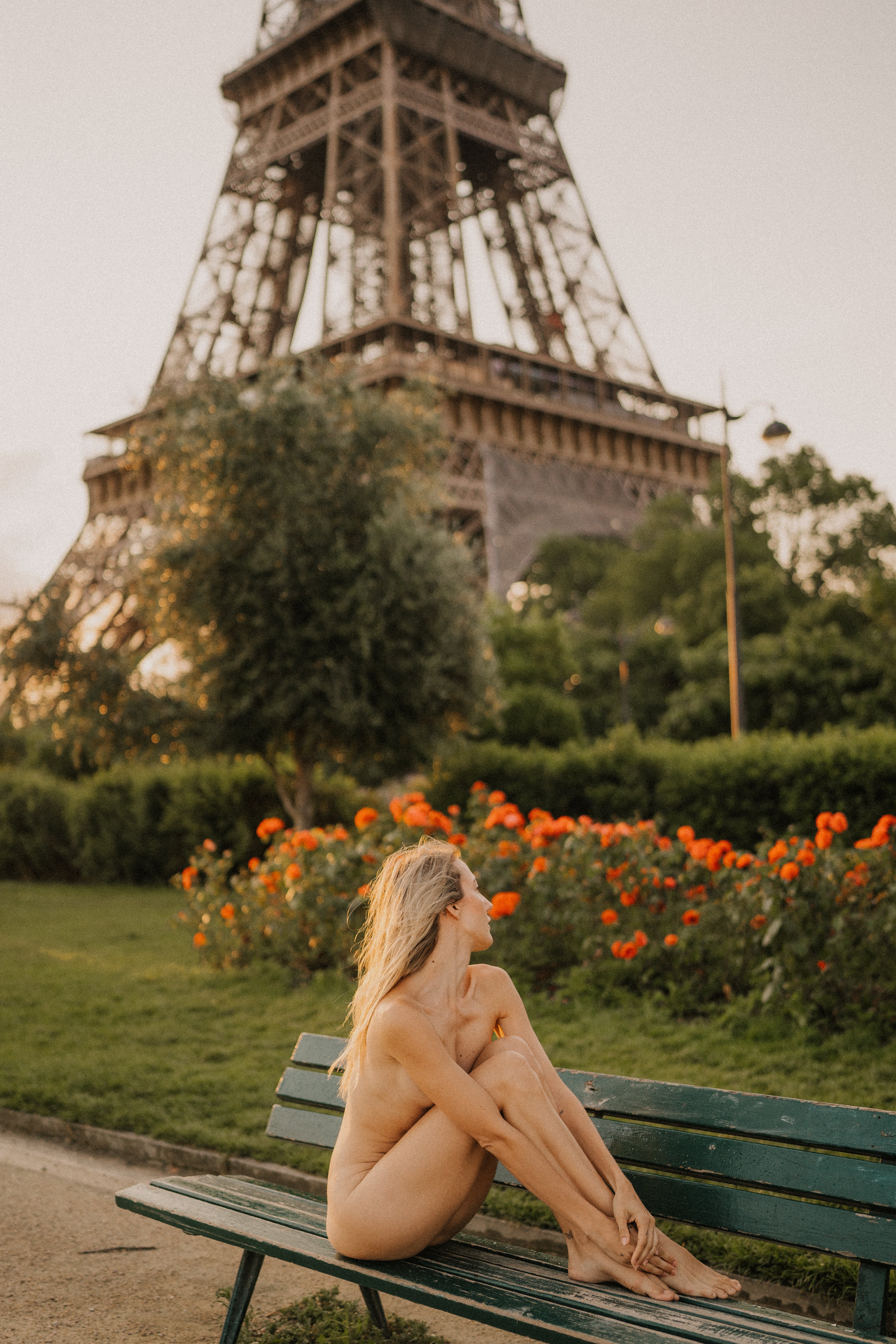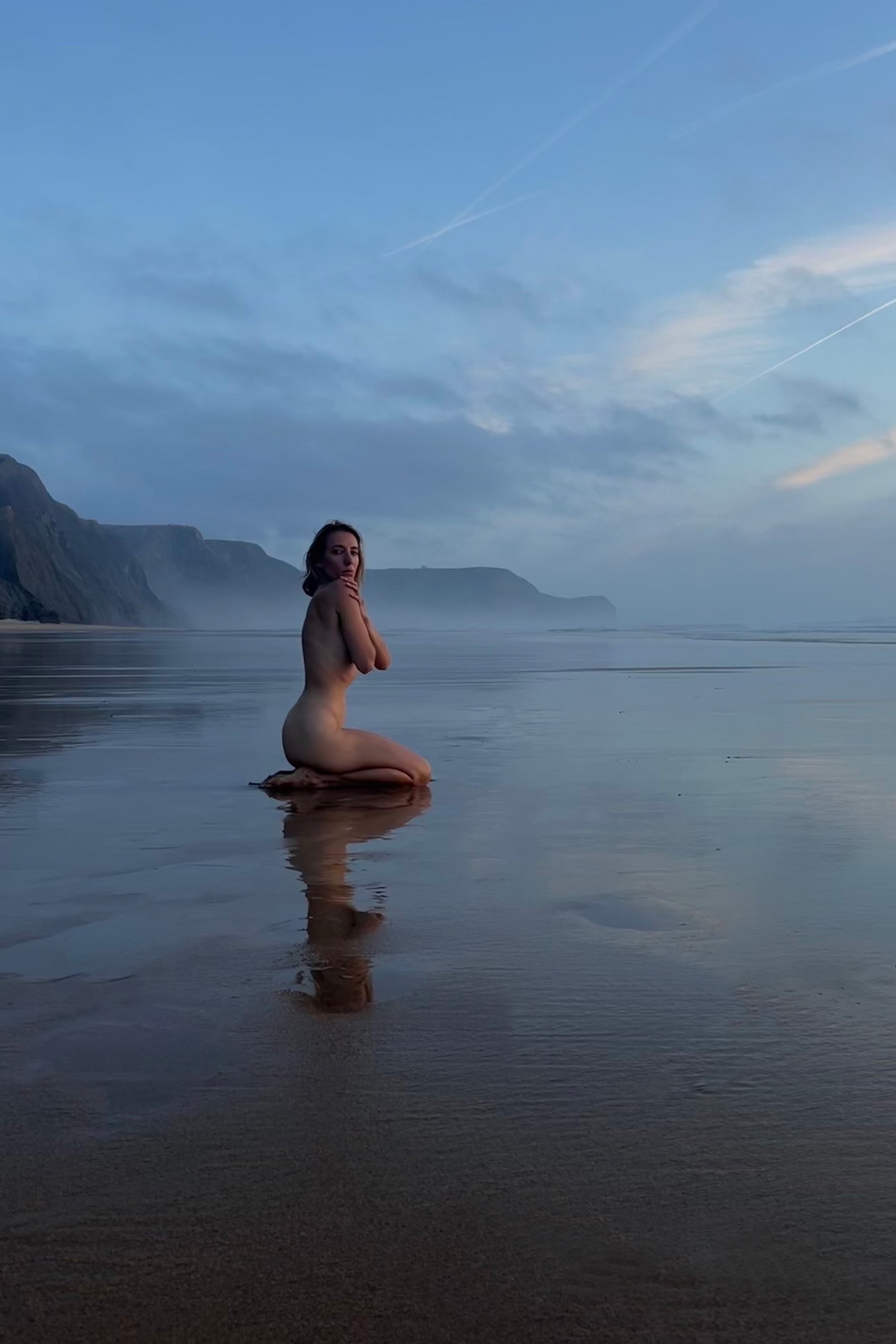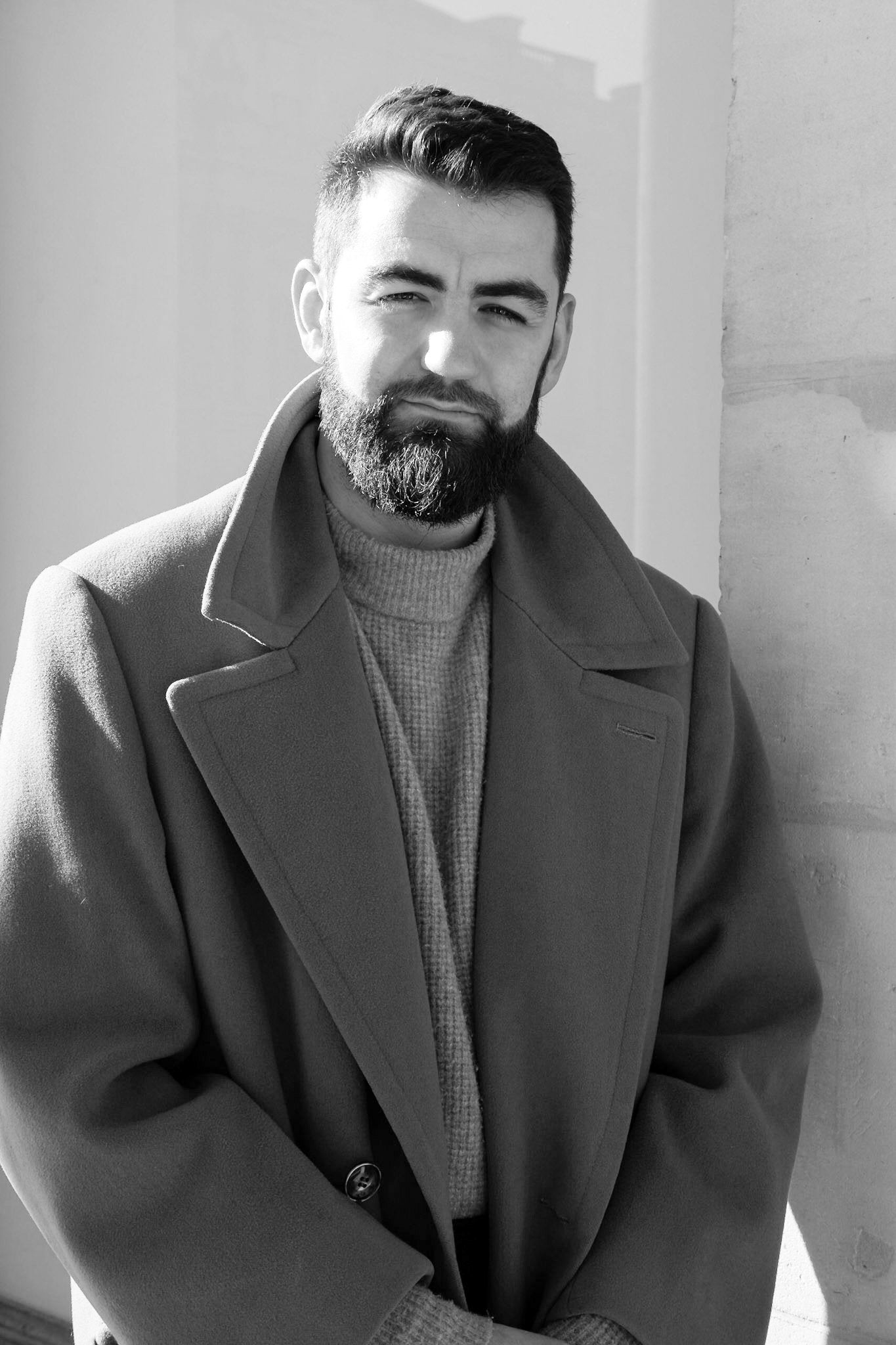
Nude Art as an "Echo of Freedom” With Pauline Faieff
Conversation
Nov 17,2023 Written by New Society
In a world steeped in the undertow of societal pressures and rigid constructs, the elusive quest for self-acceptance continues to evade many. Society's parameters are defining the 'ideal' body shapes for all genders and producing professional spheres, each with confining behavioral norms. Society defines rules for censorship, deploying automated systems to filter and mute content.
And let's be honest, the societal norms are permeating our existence. In this light, we had a conversation with Pauline Faieff, who refuses to be defined by one title or a single framework.
In her own words, Pauline Faieff (@faepaulinee) is neither a model nor a photographer. She is a passionate French artist who cannot be strictly defined and who plays with creativity. Sometimes an art director, sometimes her own muse, Pauline fuses femininity, poetry, and sensuality.
Her nude art is an echo of freedom, an absolute expression of self. She visualizes an idea and collaborates with those who can help her to bring it to life. This innate curiosity blossoms into the introspective and philosophical inquiries she shares with her community, sparking dialogue and reflection.
How did art become a space where she embeds her deepest thoughts and emotions into visual manifestations? How does she bring her art beyond mere aesthetics and transform it into a conduit for unfiltered communication?
Moreover, how can the impact of her work not only lie in its creation but in the reception and interpretation of its audience, echoing her intended absolute expression of freedom? New Society spoke to Pauline learn about her art and the person behind it.

New Society: It feels like sometimes you choose a location, conduct the photo shoot, and do the modeling all by yourself. How do you choose where and how you want to do photoshoots?
Pauline Faieff: My decision on photoshoot locations is intrinsically tied to the narrative I wish to convey through my art. The venue is chosen not for its aesthetic alone but for its synergy with the underlying concept of the piece. It's the story and the message that dictate the setting, ensuring that the environment amplifies the intent of the artwork. Also, sometimes it means waiting until 4am or 5am in the morning, so I can have the ideal surrounding for the shooting, e.g. empty New York metro, in front of Eiffel Tower in Paris.
New Society: Can you share any stories or experiences that have had a significant impact on your journey?
Pauline Faieff : Reflecting on the pivotal moments that have shaped my artistic path, it's the entirety of my life experiences that resonate the most profoundly. Throughout my life, I've grappled with the weight of external perceptions and the desire to belong — to fit neatly into the societal molds and adhere to conventional standards of appearance. I've always been a creative person, so I would say, I have always wanted and tried to go beyond the societal rules.
And it is through my art that I've found liberation from these constraints. My creative expression has become a sanctuary where discomfort is shed and authenticity thrives. It's more than a journey; it's a transformation into the truest version of myself.
New Society: Embracing freedom and conveying the message through nude art photography to an audience is a unique form of artistic expression. Thank you for sharing all these with us. Now, what attracted you to Web3 initially?
Pauline Faieff: The allure of Web3 for me was the seamless blend of art and cutting-edge technology — two realms I've always been passionate about. I've had a bit of a geeky side, and the moment a friend introduced me to the expansive potential of Web3, I was captivated. It felt like a natural progression for my work, an innovative space where I could push creative boundaries. Fueled by this excitement, I quickly found myself setting up my digital wallet and establishing my presence on OpenSea, eager to explore this new frontier.
New Society: Has the technology born with Web3 and around it impacted or changed the way you create your art?
Pauline Faieff: Web3 has not just impacted my art; it has revolutionized my entire creative process. It's connected me with a community of like-minded individuals, all united by shared values and a vision for what art could be. This network has exposed me to new mediums and daily inspiration from fellow artists and events, enriching my creativity in manifold ways.
Web3 and NFTs promise a new age of artistic freedom, and we, as artists, must seize this opportunity to redefine the boundaries of artistic expression and challenge societal norms. This isn't just about embracing a new technology; it's about heralding a new era of creativity, acceptance, and appreciation of Nude Art.
New Society: So it's more than just the creative process. It's also about the human in Web3.
Pauline Faieff: Yes. I've always been drawn to the human connection. Understanding the thoughts and perspectives of others has been a fundamental part of who I am. In the realm of Web3, I've discovered a community that resonates with my work. Here, people engage more deeply with the messaging behind my art, taking the time to explore descriptions and captions. Generally, there's a greater acceptance of my artistic expression.
That's not to say everything's flawless; there are still encounters with individuals who might not align with my art style or galleries that shy away from nudity in art. Yet, my experiences within the Web3 community have been overwhelmingly positive. Above all, I've found a network of fellow artists in the nude art sphere — connecting, exchanging ideas, and forming tight-knit collaborative relationships.

New Society: “You’re not just a body” is such a fantastic name. How did you come up with it?
Pauline Faieff: 'You’re not just a body' emerged from a wellspring of personal experiences and societal observations. It's a response to the objectification I've faced and the pervasive sexualization of bodies, particularly those of women, throughout history.
It's also a declaration against societal constraints — a reminder that our freedom to exist authentically is too often shackled by arbitrary rules. My belief is steadfast that our autonomy over our bodies should be embraced, provided it doesn't impinge on the freedom of others.
In my work, I seek to portray the delicate dance between humanity and their habitats, be it urban or natural. 'Fragile' here is not synonymous with weakness, but rather a call for mindfulness and respect. This concept serves to challenge the everyday discomfort surrounding nudity — a topic that touches every aspect of our lives, from the privacy of our homes to the broad expanse of cultural arenas.
New Society: What is the most challenging and rewarding thing about what you do?
Pauline Faieff: The most challenging thing in my artistic pursuit is navigating the censorship. In an age where social media ubiquitously influences our daily lives, the shadowbanning or outright deletion of content can be disheartening for a nude artist. This is particularly ironic considering the longstanding tradition of nude artistry in the history of art and the ongoing debates around gender equality.
Despite the human body being a natural and historic subject of art, contemporary censorship can feel like a stifling force against creative expression. Another challenge tied to this is the struggle to discuss and share my art freely without facing societal backlash for simply portraying a natural part of human existence.
Yet, the most rewarding aspect is immeasurably profound — receiving messages from individuals who've faced similar struggles, expressing gratitude for how my art has helped them. These connections reaffirm my purpose: to challenge entrenched beliefs, to empower, and to catalyze change through the universal language of art.
New Society: What is the most commonly misunderstood thing about what you do?
Pauline Faieff: One of the most frequent misunderstood about my art is the tendency for viewers to view it through a solely sexualized lens, missing the deeper narrative. Society has long wielded control over the perception of nudity, often framing it in a negative light — as something shameful, or as a commodity for attention rather than a form of self-expression. My work challenges these misconceptions, advocating that a body is not just an object; it's a canvas of individuality and freedom.
New Society: What are you fascinated by outside of photography?
Pauline Faieff: I am fascinated by life, by the human, by all the forms of art that allow us to express and free ourselves. Maybe that's why I also like writing. Such as poetry.
